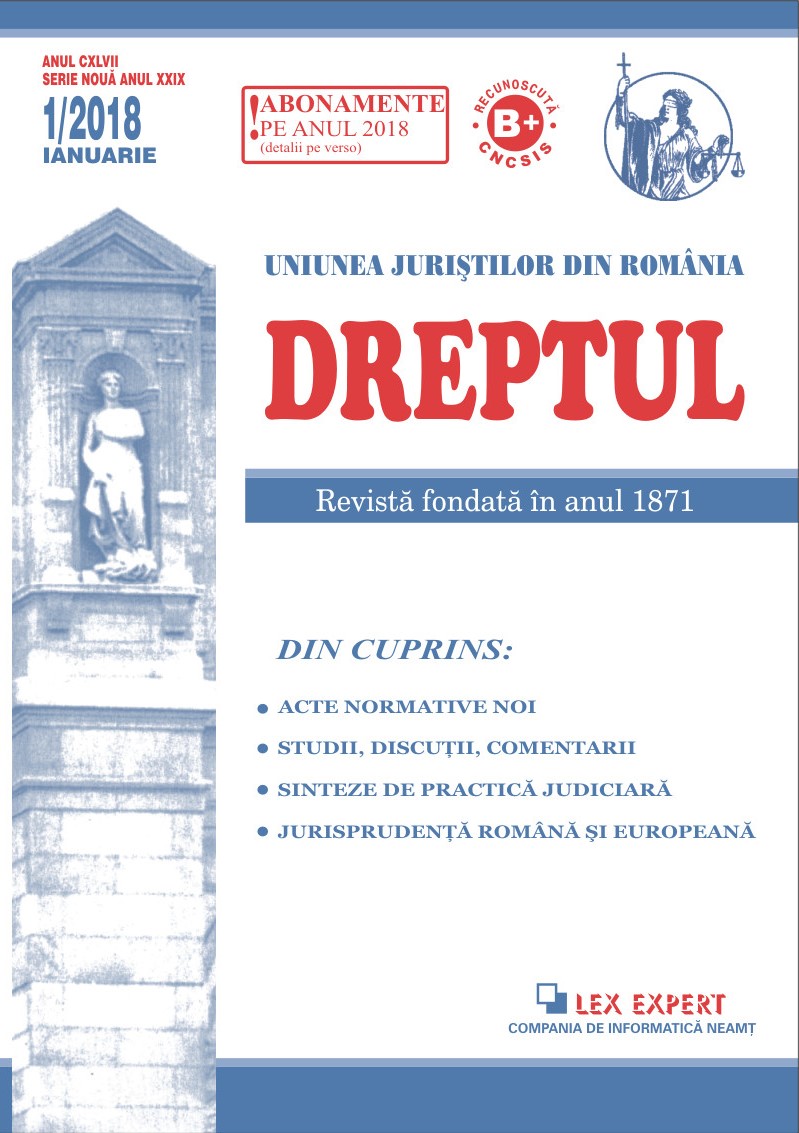Concurența comercială. Concept, funcții și varietăți
Commercial competition. Concept, functions, and varieties
Author(s): Costin CalinSubject(s): Law, Constitution, Jurisprudence
Published by: Uniunea Juriștilor din România
Keywords: commercial competition; perfect competition; imperfect competition; quasi-perfect competition; monopolistic competition; fair competition; unfair competition;price.;
Summary/Abstract: Commercial competition is „a social patrimonial or non-patrimonial relationship, arising between natural or legal persons engaged in economic activities, based on the property right, equal opportunity for competitors, the freedom of action for enterprises, the freedom of choice for consumers and the obligation of the participants in these relationships to enable the exercise of the mentioned rights, in order to ensure a degree of rivalry between competitors which would bring benefits to the consumers, in terms of price, quality of the marketed goods and services”. Competition can be manifested in various forms, namely: perfect competition, also called pure; real perfect competition; imperfect competition; monopolistic competition. From a different perspective, namely that of the respect for fair customs and of the general principle of good faith, the law distinguishes between fair competition and unfair competition. Fair competition is „the situation of rivalry on the market, in which each enterprise tries to simultaneously obtain sales, profit and/or market share, offering the best practical combination of prices, quality and related services, by respecting the fair customs and the general principle of good faith” [Article 11 a) of the Law No 11/1991 on combating unfair competition]. „Unfair competition is... the commercial practices of the enterprises that contravene to the fair customs and to the general principle of good faith and which cause or may cause damages to any market participants” [Article 2 (1) of the Law No 11/1991]. Price is an essential indicator of the social reality and also a market instrument. In the doctrine the market price is defined as „a quantity of money that the buyer is willing to offer and can offer to the producer in return for the good he can offer”. It may have anti-competitive nature when it is derisory or contrary to fair customs.
Journal: Revista „Dreptul”
- Issue Year: 2018
- Issue No: 01
- Page Range: 37-46
- Page Count: 10
- Language: Romanian
- Content File-PDF

